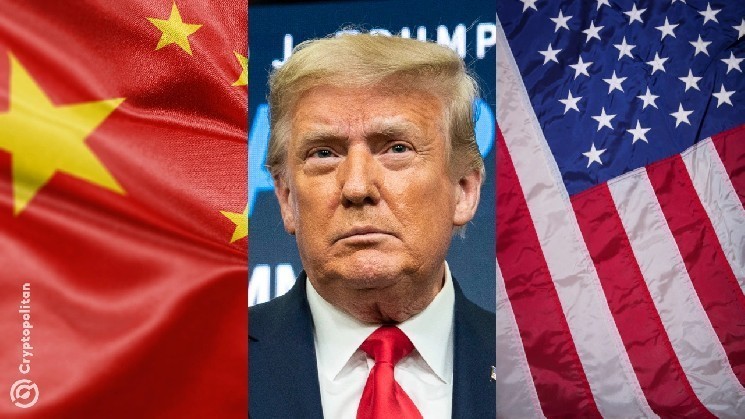
President Donald Trump said the U.S. and China were working to resolve the tariff war, but Beijing refuted his claims. On April 24, China maintained that it had not held trade talks with Washington despite repeated remarks from Trump suggesting there had been engagement.
A spokesperson for China’s Ministry of Commerce, He Yadong, stated that any claims about the progress of China-U.S. trade negotiations were groundless and had no factual basis. A spokesperson for China’s Ministry of Foreign Affairs, Guo Jiakun, also acknowledged that China and the U.S. had not yet conducted consultations or negotiations on levies, let alone reached an agreement.
Beijing dismisses Trump’s claims of China-U.S. trade negotiation
BREAKING: China calls Trump’s claims that the two nations have been talking about a trade deal, “fake news”.
China says there are NO ongoing talks with the U.S. and they have just called for the U.S. to cancel unilateral tariffs.
— Brian Krassenstein (@krassenstein) April 24, 2025
China has dismissed President Donald Trump’s claims that the U.S. and China were at the negotiating table to resolve the trade war. He Yadong, a spokesperson for China’s Ministry of Commerce, mentioned that Trump’s claims about the progress of China-U.S. trade negotiations were groundless and had no factual basis.
Trump said he planned to be “very nice” to reach a deal, as Washington discussed it with Beijing this week. The President also called his 145% tariff on Chinese goods “too high” and promised it would “come down substantially.”
On Thursday, another Chinese official dismissed the President’s claims and said China was prepared to negotiate only under certain conditions. Jiakun noted that China’s attitude is consistent and clear: if the U.S. wants to fight, Beijing will fight to the end, and “if you want to talk, the door is open.”
“China and the United States have not conducted consultations or negotiations on tariffs, let alone reached an agreement.”
-Guo Jiakum, spokesperson for China’s Ministry of Foreign Affairs.
Despite China’s stance, Trump continued to claim negotiations were taking place during a brief availability with reporters alongside Norway’s prime minister Thursday afternoon. He argued that there was a meeting this morning, and it didn’t matter who “they” were. Trump acknowledged that he would reveal the talks from this morning later and stressed that “we’ve been meeting with China.”
Washington issued China the highest tariffs of any country, and the nation has reciprocated with 125% on American imports. It was also reported on Wednesday that the Trump administration was considering dropping the tariffs to 50 percent.
Treasury Secretary Scott Bessent added to the conflicting reports and denied the report on Wednesday that the U.S. would slash the tariffs on China. He maintained that the heightened U.S.-China tariffs must come down before trade negotiations proceed. Bessent also added that de-escalation was necessary for the world’s two largest economies to rebalance their trading partnership.
Bessent also acknowledged that neither side believed the current levies were sustainable. He argued that the tariffs were equivalent to an embargo and that a break in trade between the two countries did not suit anyone’s interests.
U.S.-China trade war causes market uncertainty
U.S. businesses face heightened import costs while Chinese exports are squeezed by falling U.S. demand. The world’s hope of a de-escalation in the trade war also caused the stock market to rise Wednesday.
Stock futures plummeted on Thursday morning after investors heard mixed remarks from Washington and Beijing. Gaurav Mallik, chief investment officer of Massachusetts-based Pallas Capital Advisors, believes there will be some fluctuation in the market until there’s a more permanent solution to the tariff talk turbulence.
Gaurav noted that stocks remained range-bound for the time being despite expectations of a more dovish tone on tariffs from the Trump administration. He also argued that the ultimate goal for markets is either a reversal of tariffs or significant trade deals. The financial expert believes it can take a few months for market corrections to end, and he is confident that there’s a clear market correction due to the speed of the declines.
